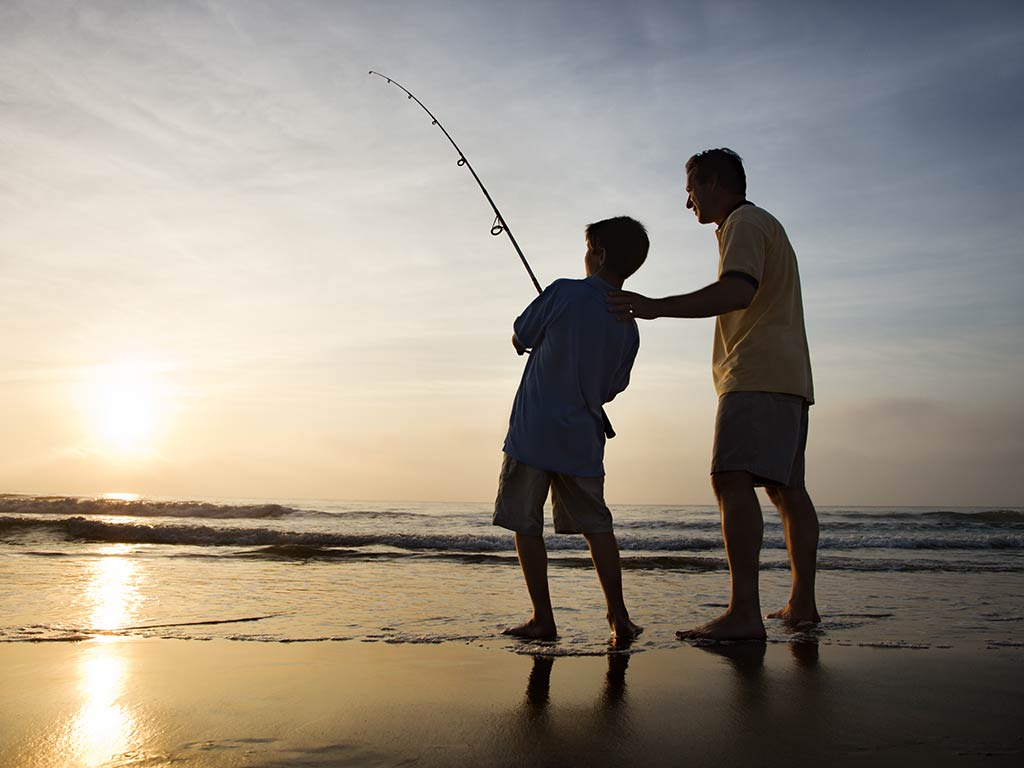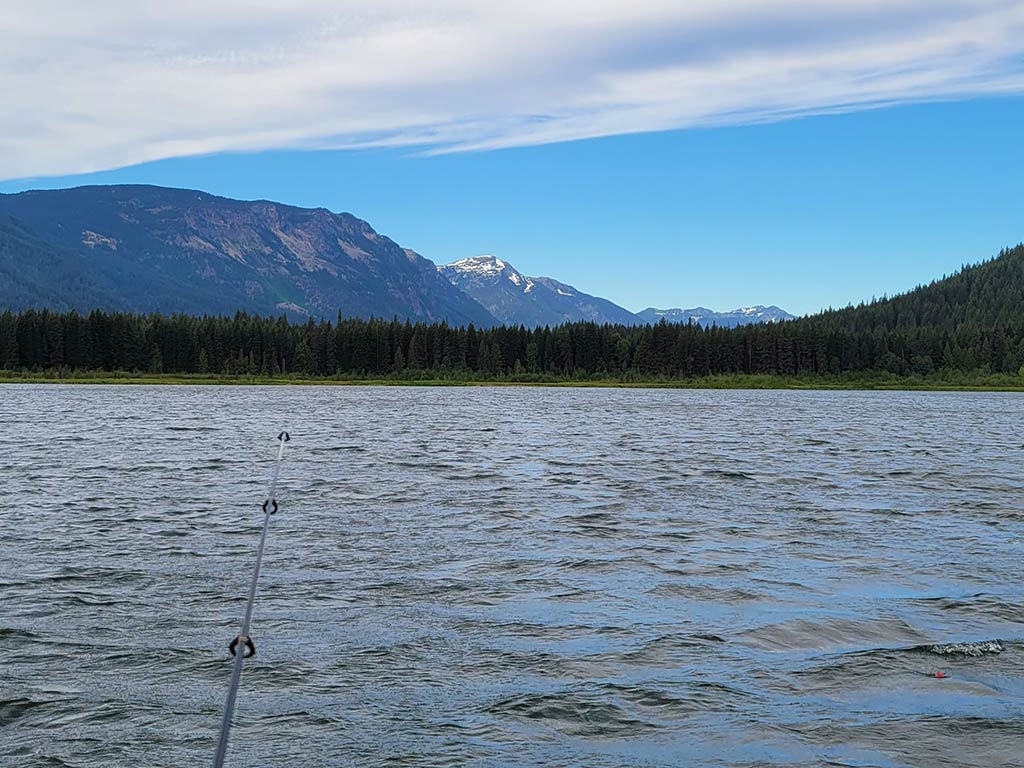So you’re looking for the best beginner fishing rod. Well, you’ve come to the right article! Having a durable and reliable rod is key to your fishing trips’ success. There are so many options out there, narrowing it down can be pretty tricky. After all, choosing the right stick comes down to the environment you’re fishing in, your targeted species, and personal preference.

All of the above impact your choice of length, material, power, and action. It may sound like a lot to think about, but fear not! I’m here to break it all down for you. Let’s dive in and discover the best rods for first-timers!
What to consider when getting a beginner fishing rod?
Rod Length
One of the first things to consider when choosing a rod is its length. There are tiny rods out there, mainly used by children. However, these can also be effective if you’re looking to target small freshwater fish.

Moving up, there are short rods, around 6–7 feet long. These are common for targeting big game fish in deep coastal waters. This may sound counter-productive for a new angler, but these rods provide more room for control and can withstand tough battles. They’re also more helpful if fishing in a tight area or on a small vessel such as a kayak or paddleboard.
In fact, short rods are the most common out there. A 6–7.5′ rod can do the job for pretty much all kinds of fishing. This length is perfect for casting and retrieving techniques as well as free-lining. This size rod still provides durability, but it also allows for further casting. It also can handle more runs and jumps, especially from fish that like to dive into rocks or mangroves.
If you’re new to fishing, it’s unlikely that you’ll be starting off with fly fishing. However, maybe you’re reading this article as you’re thinking of making the switch to this elegant sport. The most important thing to note is that fly rods are a bit on the longer side, which is essential due to the manual casting required.

Long rods don’t just apply to fly fishing, though. Surf rods are even longer than fly rods. These are used for fishing from the beach to allow you to reach out as far and as deep as possible where larger predators may be.
Overall, the best beginner fishing rod length I suggest is one that falls in between, typically around the 7-foot mark. You can get a mix of everything in these medium rods… I can attest that they even withstand tough battles from saltwater sport fish such as Snook, Redfish, Tarpon, and even Sharks.
Rod Construction and Action
Okay, so we’ve got length out of the way. But what makes each rod unique? Well, the different materials that go into each rod for starters. First, you can pick between a fiberglass (pictured below) or a graphite rod. Fiberglass rods focus on providing flexibility and strength while graphite rods are lighter with the purpose of better casting.

Fishing rods can also come as a one-piece for better sensitivity, or as a two-piece, for more convenient storage and durability. As with the material, your choice of rod will come down to personal preference.
More importantly, though, you’ll also want to pick the best “action” rod:
- Light rods target smaller species and are best used for casting small live bait or light lures.
- Medium rods are for heavier bait and lures, farther casting, and stronger fights.
- Heavy rods are, you guessed it, for tougher battles with monster fish.
For beginners, a light rod is probably the best option as it will force you to learn the basics of fishing. That means using the drag and reel properly, rather than simply pulling in a fish thanks to the action of your rod. These rods are also perfect for a range of fish, from small Panfish up to Bass, Catfish, and plenty of inshore saltwater fish.
The Best Beginner Fishing Rods
Now that we’ve learned the basics of what to consider when selecting a fishing rod, let’s look at some real-life examples. I’ll run through some of my favorite rods that some of my friends managed to use and get hooked on fishing!

For those looking for a more affordable start, try out Ugly Stik’s GX2 known for its price and durability. This may not be one of the toughest rods out there but it gets the job done – and at a good price too. The Daiwa MLT Crossfire and Penn Fierce are also good, with similar highlights and affordable prices. If you’re fishing for Bass or Bluegill, these rods are sure to do the trick as they’ve been a staple in freshwater fishing for years.
On the saltwater side, some of the above-mentioned sticks are common in the ocean too. However, there are some rods more specific for saltwater fishing, mainly made from materials designed to withstand corrosion.

The St Croix Mojo Inshore rod was my first rod and I loved it for years until I was ready to move up. While it may be a little pricier, its strength and durability are worth the cost. Penn also produces plenty of great beginner rods, such as the Pursuit for inshore and Battalion for offshore. Penn has been around for a long time and its products are known for their quality while still offering a decent cost.
You can purchase all of the above online or in-person at most sporting and fishing stores, as well as some department stores such as Walmart. I suggest getting out there and getting your hands on them, as that can make all the difference!
Beginner Fishing Rods: Where Your Journey Starts
By now, you should have an understanding of what you should look for when choosing your beginner fishing rod. Whether you’re targeting small freshwater fish with a light rod or chasing Tarpon with a 7′ medium-action rod, there’s a rod ready for everything.

I suggest you start small to see what type of fishing rod works best for your region and preference. Perhaps plan a trip with some friends or a charter boat to try out different rods to get a feel for what you like! When you’re ready, head over to my other article to give you some insights on the best of the best when it comes to all things saltwater rods. Remember, you can use these rods in freshwater too (although not always vice versa). Tight lines!
What fishing rod did you use when you were just getting started on your angling journey? What can you recommend for others? Share in the comments below!
